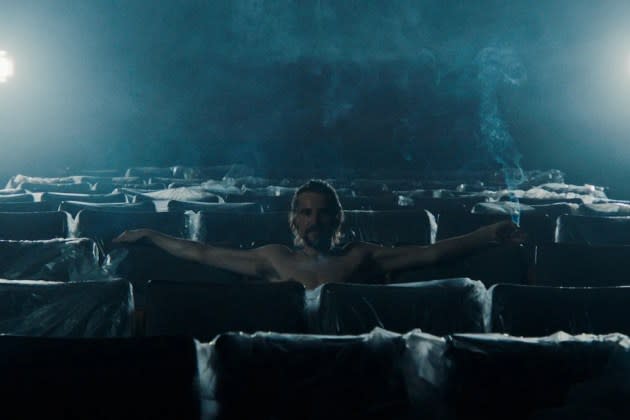‘A Desert’ Review: Joshua Erkman’s Debut Feature Is an Intriguing but Murky, Horror-Adjacent Mystery

It’s easy to get lost in the desert, a fate that befalls Joshua Erkman’s debut feature. While his protagonists eventually get dangerously close to some lurid, lethal goings-on, this self-described “neo-noir horror” leaves a vague and rudderless final impression despite its intriguing-enough buildup. “A Desert” aims for the enigmatic, supernaturally-tinged mystery of something like Lynch’s “Lost Highway,” but in the end lacks the tension and atmosphere to pull that tricky gambit off. Nonetheless, its arty sojourn through backroads-thriller terrain is likely to gain some supporters as a Tribeca Fest midnight section premiere.
An opening sequence expanded upon much later introduces the idea that what we’re watching is some sort of purgatorial film loop that traps the unwary. But like several other conceits here, it’s never developed enough to take finite shape. Still, we first meet Alex Clark (Kai Lennox) as he’s exploring a dark, dusty cinema in the Mojave. He’s using antiquated camera equipment to photograph such abandoned sites in hopes of rekindling the excitement that greeted his first published collection of images two decades ago, “Death of the New West.” It’s a solo trip, though he calls Los Angeles each day to update wife Samantha (Sarah Lind) on his progress.
More from Variety
'Sabbath Queen' Review: A Provocative if Cluttered Face-Off Between Different Notions of Judaism
'The Damned' Review: A Chilly Horror-Drama That Clings to Its Atmosphere for as Long as It Can
At a Budget Inn near Yucca Valley, he’s alarmed by nightly violent arguments in the room next door. Complaining to the motel clerk (a neat reptilian turn by Bill Bookston) leads awkwardly to his meeting those fellow guests: intimidating, wifebeater-wearing Renny (Zachary Ray Sherman) and barely-clad Susie Q. (Ashley B. Smith). They claim to be siblings, but the relationship seems more one of pimp and prostitute.
Somewhat improbably, Alex lets them bully their way into his room, then coerce him into swigging from a bottle of unknown intoxicant. He wakes up alone the next day with a splitting headache and little memory of whatever shameful deeds were done. But his real mistake lies in subsequently letting Renny guide him to some locations that “no photographer has seen before.”
A week later, Sam panics over not having heard from her husband since one rambling voicemail message. The police aren’t particularly helpful, so she hires private detective Harold Palladino (David Yow) to retrace Alex’s steps. It’s not long before he’s ensconced in the same motel room, making the acquaintance of the same dubious characters and exploring the same creepy local sites — including a long-decommissioned military base that may be hiding sinister activities. Eventually Sam, too, makes the unwise decision to come here.
Erkman, whose first feature comes after a series of well-received shorts, gets good performances from the entire cast. There is consistent visual interest in Jay Keitel’s cinematography, which echoes the desolate desert aesthetic of Alex’s still imagery, while indie rock veteran Ty Segall contributes an attractively diverse, sparely applied score played by his Freedom Band.
But the slow-burn approach that works well during the first act grows wearying later on, when bad things start happening on an accelerated schedule, yet the pacing still feels draggy. There’s just not much suspense generated, even after initially puzzling glimpses of a bunker-like studio for questionable transmissions get somewhat elucidated. Too many fateful late occurrences seem to happen by unlikely coincidence. A sense of unpinnable but pervasive evil is something the film would like to communicate, but lacks the stylistic finesse to achieve. The narrative ultimately vanishes down a rabbit’s hole that feels less like a frightening, otherworldly trap than an exasperatingly fuzzy dead end.
Still, the teasing suggestion of some nefarious, labyrinthine occult and/or criminal enterprise will probably be enough for some viewers, who can project their own imagined explanations onto the fadeout. “A Desert” does have its share of diverting quirks, notably the inevitable late-night-TV horror excerpt that turns out to be James Landis’ 1963 cult favorite “The Sadist,” with Arch Hall Jr. as another trashy young psychopath haunting the backroads of Southern California.
Best of Variety
Sign up for Variety’s Newsletter. For the latest news, follow us on Facebook, Twitter, and Instagram.

